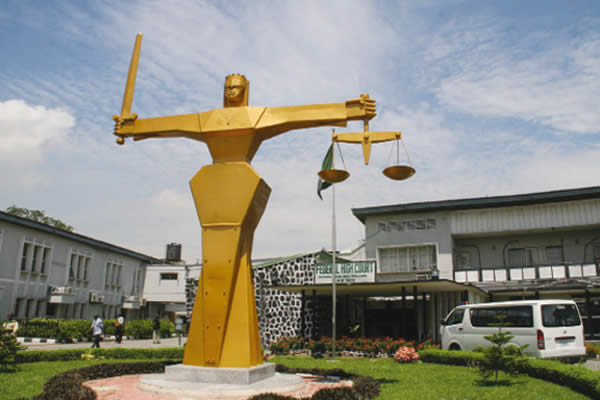By Abbanobi -Eku Onyekachi
Izunna Eke Esq, a legal practitioner of note has allegedly decried what he described as judicial lawlessness in the Nigeria, saying that such is a threat to democracy.
Addressing journalists on Tuesday in Abuja, the lawyer alleged that Nigerian judiciary has been marred by numerous cases of lawlessness, undermining the trust of citizens in the system. A recent example, according to him is the case of two brothers, Kingsley Ogbonna and Monday Ogbonna, who have been in prison custody since March 2024. He however informed that despite the notice of discontinuance of the trumped-up terrorism charges filed against them, the Federal High Court sitting in Abuja has refused to release them.
According to him, the incident highlights the need for urgent reforms to address judicial lawlessness in Nigeria. Quoting Dr. Charles Omole, a lawyer and security consultant: “Judicial corruption is a global phenomenon, although its worst manifestations are in developing countries.”
To tackle the ugly trend, he said experts recommended that: prosecutorial power be removed from the police, so as to focus solely on investigating crimes, while a separate prosecution agency determines whether to prosecute or not;
establishing clear judicial guidelines, for the National Judicial Council (NJC) to set targets for judges, with consequences for non-performance;
ensuring fair and independent appointments, with the reason that the appointment of judges should be based on merit, with transparent selection criteria and public access to information on the decision-making process.
Others according to him were: implementing regular performance reviews, so for judges to undergo regular performance reviews, with poor performers facing disciplinary action and; promoting transparency and accountability, for the judiciary to embrace digitization, with electronic judicial platforms and better public access to information on cases.
The rest were: strengthening sentencing guidelines, for judges to follow strict sentencing guidelines, reducing discretion and opportunities for corruption; improving remuneration and training, for judges and court staff to have better pay and regular training to reduce the temptation of corruption and improve performance.
“Addressing judicial lawlessness in Nigeria requires a multifaceted approach, by implementing those reforms, Nigeria can strengthen its judiciary, promote transparency and accountability, and ensure that justice is served,” he stated.



